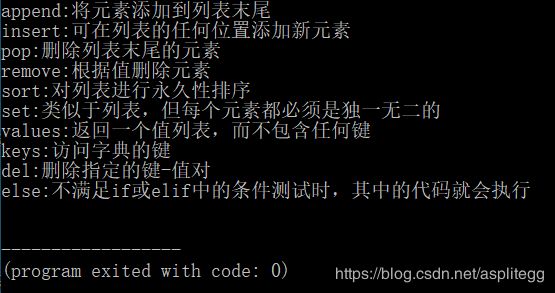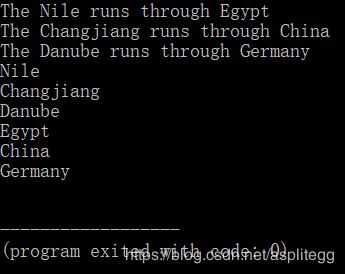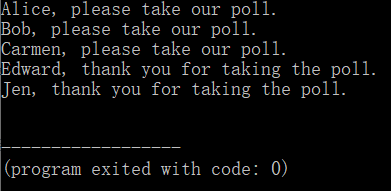- Python从入门到精通的系统性学习路径
niuTaylor
编程区python学习开发语言
Python从入门到精通的系统性学习路径一、基础语法快速突破1.变量与基础操作#动态类型演示a=10#整型a=3.14#浮点型a="Python"#字符串a=[1,2,3]#列表#格式化输出进阶name="Alice"print(f"{name:*^20}")#居中填充输出:******Alice*******2.运算符优先级实战#常见运算符优先级练习result=5+3*2**2//(4%3)p
- Python技术全景解析:从基础到前沿的深度探索
靠近彗星
python开发语言性能优化个人开发极限编程
目录一、Python为何成为开发者首选?1.核心优势矩阵2.性能进化史二、Python核心应用领域1.数据科学黄金三角2.AI开发新范式三、现代Python进阶技巧1.类型提示革命2.异步编程实战四、Python工程化实践1.现代项目架构2.性能优化矩阵五、Python未来生态展望1.前沿技术融合2.性能革命六、学习路线图1.技能成长路径基础阶段(1-3月)专业方向(3-6月)深度进阶(6-12月
- 如何使用DeepSeek编写测试用例?
海姐软件测试
deepseek大数据测试工具
一、DeepSeek在测试用例设计中的定位DeepSeek作为AI工具,并非直接替代测试设计,而是通过以下方式提升效率:快速生成基础用例框架(等价类、边界值等)智能补充易遗漏场景(如特殊字符、异常流)自动化脚本片段生成(Python/pytest/JUnit等)测试数据构造建议(符合业务规则的Mock数据)二、四步法实战:AI协作编写测试用例Step1:明确需求输入输入质量决定输出质量,需向Dee
- Explore Model-Based Feature Importance
后端
Question1.ExploreModel-BasedFeatureImportanceThroughoutthisquestion,youmayonlyusePython.Foreachsub-question,providecommentary(ifneeded)alongwithscreenshotsofthecodeused.Pleasealsoprovideacopyofthecode
- Python 标准库之 logging 模块
36度道
python系列学习笔记python
1.logging模块简介在软件开发过程中,了解程序的运行状态、记录重要事件以及排查错误是至关重要的。logging模块为Python提供了灵活且强大的日志记录功能。它允许开发者控制日志的输出内容、输出位置(如文件、控制台)、日志级别(用于过滤不同重要程度的日志信息)等,帮助开发者更好地监控和调试程序。2.基本使用简单配置与输出:importlogging#配置日志基本设置logging.basi
- python 标准库之 functools 模块
36度道
python系列学习笔记python
functools模块提供了一系列用于处理函数的工具。其中,像partial可以创建一个新的可调用对象,这个对象固定了原函数的部分参数,有点像给函数穿上了“参数防护服”;reduce能对一个序列进行累积计算,就好比是一个勤劳的小会计,按顺序把序列里的数加起来或者做其他运算;wraps主要用于装饰器,它能帮助装饰器函数保留被装饰函数的元信息,比如函数名、文档字符串等,让被装饰函数“表里如一”。底层原
- Python——函数
生如雪花
Pythonpython
一、十进制小数转换成二进制小数【问题描述】编写程序,输入十进制小数(只考虑正数),把它转换为以字符串形式存储的二进制小数,输出该二进制小数字符串。对于转换得到的二进制小数,小数点后最多保留10位。小数点后不足10位,则输出这些位,尾部不补0;小数点后超出10位,则直接舍弃超出部分。【输入形式】十进制浮点小数【输出形式】对应输入小数的二进制小数字符串。若整数部分或者小数部分为0,则输出0。比如输入0
- Python Web框架 Flask vs Django vs FastAPI
ZengDerby
pythonflaskfastapidjango
如果您需要构建大型的、功能丰富的应用程序,Django可能是一个很好的选择。如果您需要更灵活的框架,可以选择Flask来定制开发。而对于追求极致性能和高并发处理的项目,FastAPI可能是一个更加理想的选择。优缺点Flask在小型项目或微服务理想的选择。Flask灵活且轻量,非常适合快速开发小型应用。Flask是一个非常灵活的框架,它允许您根据项目需求进行定制。您可以根据需要选择合适的插件和扩展。
- python if用法
IT技术土狗
python从入门到入狱python
pythonif用法流程控制流程控制即控制流程,具体指控制程序的执行流程,而程序的执行流程分为三种结构:顺序结构(之前我们写的代码都是顺序结构)、分支结构(用到if判断)、循环结构(用到while与for)1、分支结构分支结构就是根据条件判断的真假去执行不同分支对应的子代码2、为什么需要分支结构人类某些时候需要根据条件来决定做什么事情,比如:如果今天下雨,就带伞所以程序中必须有相应的机制来控制计算
- python与数值有关的问题
cbxjsdg
python
1.复数的问题x=123+456j#后面没加j部分为实数,加j部分为虚数print('实数部分',x.real)#表示实数print('虚数部分',x.imag)#表示虚数2.查看数值的类型a=10b=10.0c=1.99E2#表示1.99*10的二次方的意思,这是科学计数法print('数值为',a,'数值类型为',type(a))print('数值为',b,'数值类型为',type(b))pr
- 【架构设计】前置知识
GIS程序媛—椰子
架构设计架构设计
架构设计是软件开发的进阶技能,需要结合理论知识和实践经验。以下是掌握架构设计所需的前置知识及其重要性,以及学习路径建议:一、基础编程能力1.编程语言与核心概念掌握至少一门主流语言(如Java、Python、C#、Go等),理解其语法、特性及生态。核心概念:面向对象(OOP)、函数式编程(FP)、并发/异步、内存管理等。示例:通过Java理解接口、多态、设计模式。通过Go学习并发模型(Gorouti
- Python, C ++开发家庭开支
Geeker-2025
pythonc++
开发一款**家庭开支数字化记录与结算App**是一个非常有意义的项目,旨在帮助家庭用户高效管理开支、记录消费、分析财务状况,并提供结算和预算管理功能。以下是基于**Python**和**C++**的开发方案,结合两者在数据处理、实时通信和系统开发中的优势。---##1.**项目需求分析**家庭开支数字化记录与结算App的核心功能包括:1.**用户管理**:-用户注册、登录,支持家庭成员管理。2.*
- linux执行python脚本conda库_Pycharm使用远程linux服务器conda/python环境在本地运行的方法(图解))...
weixin_39992462
Pycharm使用远程linux服务器conda/python环境在本地运行的方法(图解))1.首先在PycharmTools->Deployment->Configurations打开新建SFTP输入host:ip地址username密码然后点击TestConnection出现下图,则测试成功因为已经连接成功,这时候已经可以读取远程服务器的目录了:2.选择项目mapping(可以跳过3.在Set
- brew mysql client_Mac安装mysqlclient过程解析
weixin_39630440
brewmysqlclient
尝试在虚拟环境下通过pip安装:pipinstallmysqlclient然后报错:OSError:mysql_confignotfound找到官方文档https://github.com/PyMySQL/mysqlclient-python,解释说安装前需安装另一个模块:brewinstallmysql-connector-c但是报错:查看报错信息,在安装mysql-connector-c前先b
- macos安装python-nodejs_MAC平台基于Python Appium环境搭建过程图解
weixin_39612038
前言最近笔者要为python+appium课程做准备,mac在2019年重新安装了一次系统,这次重新在mac下搭建appium环境,刚好顺带写个文稿给大家分享分享搭建过程。一、环境和所需软件概述1.1目前环境:MacOS(10.15.3)1.2所需软件:jdk-8u91-macosx-x64.dmg(jdk1.8及以上版本应该都可以)android-sdk_r24.4.1-macosx.zip(m
- python接口自动化
全世界最帅的男人
python自动化开发语言
Python是一种非常流行的编程语言,也是许多接口自动化测试框架的首选语言。下面是一个简单的接口自动化测试框架的思路:1.安装必要的库和工具:在Python中,我们可以使用requests库来发送HTTP请求,使用unittest库来编写测试用例,使用HTMLTestRunner库来生成测试报告。此外,我们还需要安装一个代码编辑器,如PyCharm或VSCode。2.创建测试用例:编写测试用例是接
- Python接口自动化
花落同学
Python自动化从入门到放弃python自动化
4接口自动化4.1使用python实现接口自动化如果不了解接口测试可参考https://ke.qq.com/course/4092904使用Python的request库实现接口测试:importjsonimportrequests#使用session管理:#1.可以自动关联set-cookie里面的内容#2.可以加快与服务器的连接速度session=requests.session()#auth
- Python异步编程:从基础到高级
CarlowZJ
python网络数据库
前言在现代软件开发中,异步编程已经成为一种必不可少的技能。Python的异步编程模型(基于asyncio)为开发者提供了一种高效的方式来处理高并发任务,而无需依赖多线程或多进程。异步编程不仅可以提高程序的性能,还能简化并发代码的复杂性。本文将带你从异步编程的基础概念出发,逐步深入到高级应用,帮助你掌握Python异步编程的核心技能。一、异步编程的基础概念1.1什么是异步编程?异步编程是一种编程范式
- python实现接口自动化
一只小H呀の
python自动化开发语言
代码实现自动化相关理论代码编写脚本和工具实现脚本区别是啥?代码:优点:代码灵活方便缺点:学习成本高工具:优点:易上手缺点:灵活度低,有局限性。总结:功能脚本:工具自动化脚本:代码代码接口自动化怎么做的?第一步:python+request+unittest;具体描述?第二步:封装、调用、数据驱动、日志、报告;详细举例:第三步:api\scripts\data\log\report\until…脚本
- 探索Python中的集成方法:Stacking
Echo_Wish
Python笔记Python算法python开发语言
在机器学习领域,Stacking是一种高级的集成学习方法,它通过将多个基本模型的预测结果作为新的特征输入到一个元模型中,从而提高整体模型的性能和鲁棒性。本文将深入介绍Stacking的原理、实现方式以及如何在Python中应用。什么是Stacking?Stacking,又称为堆叠泛化(StackedGeneralization),是一种模型集成方法,与Bagging和Boosting不同,它并不直
- 【Python】 Stacking: 强大的集成学习方法
音乐学家方大刚
Pythonpython集成学习开发语言
我们都找到天使了说好了心事不能偷藏着什么都一起做幸福得没话说把坏脾气变成了好沟通我们都找到天使了约好了负责对方的快乐阳光下的山坡你素描的以后怎么抄袭我脑袋想的薛凯琪《找到天使了》在机器学习中,单一模型的性能可能会受到其局限性和数据的影响。为了解决这个问题,我们可以使用集成学习(EnsembleLearning)方法。集成学习通过结合多个基模型的预测结果,来提高整体模型的准确性和稳健性。Stacki
- minimind2学习:(1)训练
溯源006
minimind学习学习深度学习生成模型
1、数据下载参考:https://github.com/jingyaogong/minimind/tree/master2、预训练训练6个epochspythontrain_pretrain.py--epochs6训练过程:LLM总参数量:25.830百万Epoch:[1/6](0/11040)loss:8.940lr:0.000550000000epoch_Time:106.0min:Epoch
- 使用Seaborn库中的`violinplot`函数绘制水平小提琴图(Violin Plot)是一种常见的数据可视化方法
code_welike
信息可视化数据分析数据挖掘Python
使用Seaborn库中的violinplot函数绘制水平小提琴图(ViolinPlot)是一种常见的数据可视化方法。水平小提琴图可以展示数据的分布特征,并可以对比不同组别之间的差异。本文将介绍如何使用Python和Seaborn库绘制水平小提琴图,并提供相应的源代码示例。首先,我们需要确保已经安装了Seaborn库。可以使用以下命令在Python中安装Seaborn:pipinstallseabo
- 【集成学习】:Stacking原理以及Python代码实现
Geeksongs
机器学习python机器学习深度学习人工智能算法
Stacking集成学习在各类机器学习竞赛当中得到了广泛的应用,尤其是在结构化的机器学习竞赛当中表现非常好。今天我们就来介绍下stacking这个在机器学习模型融合当中的大杀器的原理。并在博文的后面附有相关代码实现。总体来说,stacking集成算法主要是一种基于“标签”的学习,有以下的特点:用法:模型利用交叉验证,对训练集进行预测,从而实现二次学习优点:可以结合不同的模型缺点:增加了时间开销,容
- 使用Seaborn绘制水平小提琴图
YOUFDJ
python开发语言Python
使用Seaborn绘制水平小提琴图水平小提琴图是一种常用的数据可视化工具,可以用于展示不同类别之间的分布情况。在Python中,我们可以使用Seaborn库的catplot函数来轻松地绘制水平小提琴图。本文将介绍如何使用Seaborn绘制水平小提琴图,并附带相应的源代码示例。首先,确保你已经安装了Seaborn库。如果没有安装,可以使用以下命令在命令行中安装:pipinstallseaborn安装
- Python文件与格式化:编程世界的“读写之道“(技术深挖版)
被窝妄想家
python进阶指南python数据库开发语言
一、文件操作:Python的"读写之眼"1.1文件基础哲学在计算机世界中,文件就像一本本等待翻阅的典籍。Python的open()函数如同手持放大镜,让我们能精确控制阅读和书写:#经典打开模式组合withopen("data.txt","r+",encoding="utf-8")asf:#r+模式:可读可写,文件指针初始位置在开头content=f.read(10)#读取前10个字节f.seek(
- 使用Seaborn绘制小提琴图
CodeWG
python开发语言
使用Seaborn绘制小提琴图在数据分析与可视化中,小提琴图是一种常用的图表类型。它能够展示数据的分布情况,同时还能显示中位数、四分位数和异常值等统计指标。在Python中,我们可以使用Seaborn库来轻松地绘制小提琴图。下面就来详细介绍一下如何使用Seaborn来创建小提琴图。首先,我们需要导入必要的库和数据集。这里我们使用Seaborn自带的数据集tips作为例子。importseaborn
- python实际应用场景代码
yzx991013
python前端服务器
1.自动化文件整理importosimportshutildeforganize_downloads_folder():download_path="/Users/YourName/Downloads"#修改为你的下载路径file_types={"Images":[".jpg",".png",".gif"],"Documents":[".pdf",".docx",".txt"],"Videos":
- python大赛对名_用100行Python爬虫代码抓取公开的足球数据玩(一)
司马各
python大赛对名
在《用Python模拟2018世界杯夺冠之路》一文中,我选择从公开的足球网站用爬虫抓取数据,从而建模并模拟比赛,但是略过了爬虫的实施细节。虽然爬虫并不难做,但希望可以让更多感兴趣的朋友自己动手抓数据下来玩,提供便利,今天就把我抓取球探网的方法和Python源码拿出来分享给大家,不超过100行代码。希望球友们能快速get爬虫的技能。#-*-coding:utf-8-*-from__future__i
- 从入门到进阶:Python数据可视化实战技巧
Blossom.118
分布式系统与高性能计算领域信息可视化python开发语言网络协议springbootjava后端
在数据分析和数据科学领域,数据可视化是将复杂数据以直观图形展示的重要手段。Python作为数据科学领域的首选语言之一,提供了强大的数据可视化库,如Matplotlib、Seaborn、Plotly等。本文将从入门到进阶,逐步介绍Python数据可视化的实战技巧,帮助读者快速提升数据可视化能力。一、入门:Matplotlib基础Matplotlib是Python中最基础、最强大的数据可视化库之一。它
- log4j对象改变日志级别
3213213333332132
javalog4jlevellog4j对象名称日志级别
log4j对象改变日志级别可批量的改变所有级别,或是根据条件改变日志级别。
log4j配置文件:
log4j.rootLogger=ERROR,FILE,CONSOLE,EXECPTION
#log4j.appender.FILE=org.apache.log4j.RollingFileAppender
log4j.appender.FILE=org.apache.l
- elk+redis 搭建nginx日志分析平台
ronin47
elasticsearchkibanalogstash
elk+redis 搭建nginx日志分析平台
logstash,elasticsearch,kibana 怎么进行nginx的日志分析呢?首先,架构方面,nginx是有日志文件的,它的每个请求的状态等都有日志文件进行记录。其次,需要有个队 列,redis的l
- Yii2设置时区
dcj3sjt126com
PHPtimezoneyii2
时区这东西,在开发的时候,你说重要吧,也还好,毕竟没它也能正常运行,你说不重要吧,那就纠结了。特别是linux系统,都TMD差上几小时,你能不痛苦吗?win还好一点。有一些常规方法,是大家目前都在采用的1、php.ini中的设置,这个就不谈了,2、程序中公用文件里设置,date_default_timezone_set一下时区3、或者。。。自己写时间处理函数,在遇到时间的时候,用这个函数处理(比较
- js实现前台动态添加文本框,后台获取文本框内容
171815164
文本框
<%@ page language="java" import="java.util.*" pageEncoding="UTF-8"%>
<!DOCTYPE html PUBLIC "-//W3C//DTD XHTML 1.0 Transitional//EN" "http://w
- 持续集成工具
g21121
持续集成
持续集成是什么?我们为什么需要持续集成?持续集成带来的好处是什么?什么样的项目需要持续集成?... 持续集成(Continuous integration ,简称CI),所谓集成可以理解为将互相依赖的工程或模块合并成一个能单独运行
- 数据结构哈希表(hash)总结
永夜-极光
数据结构
1.什么是hash
来源于百度百科:
Hash,一般翻译做“散列”,也有直接音译为“哈希”的,就是把任意长度的输入,通过散列算法,变换成固定长度的输出,该输出就是散列值。这种转换是一种压缩映射,也就是,散列值的空间通常远小于输入的空间,不同的输入可能会散列成相同的输出,所以不可能从散列值来唯一的确定输入值。简单的说就是一种将任意长度的消息压缩到某一固定长度的消息摘要的函数。
- 乱七八糟
程序员是怎么炼成的
eclipse中的jvm字节码查看插件地址:
http://andrei.gmxhome.de/eclipse/
安装该地址的outline 插件 后重启,打开window下的view下的bytecode视图
http://andrei.gmxhome.de/eclipse/
jvm博客:
http://yunshen0909.iteye.com/blog/2
- 职场人伤害了“上司” 怎样弥补
aijuans
职场
由于工作中的失误,或者平时不注意自己的言行“伤害”、“得罪”了自己的上司,怎么办呢?
在职业生涯中这种问题尽量不要发生。下面提供了一些解决问题的建议:
一、利用一些轻松的场合表示对他的尊重
即使是开明的上司也很注重自己的权威,都希望得到下属的尊重,所以当你与上司冲突后,最好让不愉快成为过去,你不妨在一些轻松的场合,比如会餐、联谊活动等,向上司问个好,敬下酒,表示你对对方的尊重,
- 深入浅出url编码
antonyup_2006
应用服务器浏览器servletweblogicIE
出处:http://blog.csdn.net/yzhz 杨争
http://blog.csdn.net/yzhz/archive/2007/07/03/1676796.aspx
一、问题:
编码问题是JAVA初学者在web开发过程中经常会遇到问题,网上也有大量相关的
- 建表后创建表的约束关系和增加表的字段
百合不是茶
标的约束关系增加表的字段
下面所有的操作都是在表建立后操作的,主要目的就是熟悉sql的约束,约束语句的万能公式
1,增加字段(student表中增加 姓名字段)
alter table 增加字段的表名 add 增加的字段名 增加字段的数据类型
alter table student add name varchar2(10);
&nb
- Uploadify 3.2 参数属性、事件、方法函数详解
bijian1013
JavaScriptuploadify
一.属性
属性名称
默认值
说明
auto
true
设置为true当选择文件后就直接上传了,为false需要点击上传按钮才上传。
buttonClass
”
按钮样式
buttonCursor
‘hand’
鼠标指针悬停在按钮上的样子
buttonImage
null
浏览按钮的图片的路
- 精通Oracle10编程SQL(16)使用LOB对象
bijian1013
oracle数据库plsql
/*
*使用LOB对象
*/
--LOB(Large Object)是专门用于处理大对象的一种数据类型,其所存放的数据长度可以达到4G字节
--CLOB/NCLOB用于存储大批量字符数据,BLOB用于存储大批量二进制数据,而BFILE则存储着指向OS文件的指针
/*
*综合实例
*/
--建立表空间
--#指定区尺寸为128k,如不指定,区尺寸默认为64k
CR
- 【Resin一】Resin服务器部署web应用
bit1129
resin
工作中,在Resin服务器上部署web应用,通常有如下三种方式:
配置多个web-app
配置多个http id
为每个应用配置一个propeties、xml以及sh脚本文件
配置多个web-app
在resin.xml中,可以为一个host配置多个web-app
<cluster id="app&q
- red5简介及基础知识
白糖_
基础
简介
Red5的主要功能和Macromedia公司的FMS类似,提供基于Flash的流媒体服务的一款基于Java的开源流媒体服务器。它由Java语言编写,使用RTMP作为流媒体传输协议,这与FMS完全兼容。它具有流化FLV、MP3文件,实时录制客户端流为FLV文件,共享对象,实时视频播放、Remoting等功能。用Red5替换FMS后,客户端不用更改可正
- angular.fromJson
boyitech
AngularJSAngularJS 官方APIAngularJS API
angular.fromJson 描述: 把Json字符串转为对象 使用方法: angular.fromJson(json); 参数详解: Param Type Details json
string
JSON 字符串 返回值: 对象, 数组, 字符串 或者是一个数字 示例:
<!DOCTYPE HTML>
<h
- java-颠倒一个句子中的词的顺序。比如: I am a student颠倒后变成:student a am I
bylijinnan
java
public class ReverseWords {
/**
* 题目:颠倒一个句子中的词的顺序。比如: I am a student颠倒后变成:student a am I.词以空格分隔。
* 要求:
* 1.实现速度最快,移动最少
* 2.不能使用String的方法如split,indexOf等等。
* 解答:两次翻转。
*/
publ
- web实时通讯
Chen.H
Web浏览器socket脚本
关于web实时通讯,做一些监控软件。
由web服务器组件从消息服务器订阅实时数据,并建立消息服务器到所述web服务器之间的连接,web浏览器利用从所述web服务器下载到web页面的客户端代理与web服务器组件之间的socket连接,建立web浏览器与web服务器之间的持久连接;利用所述客户端代理与web浏览器页面之间的信息交互实现页面本地更新,建立一条从消息服务器到web浏览器页面之间的消息通路
- [基因与生物]远古生物的基因可以嫁接到现代生物基因组中吗?
comsci
生物
大家仅仅把我说的事情当作一个IT行业的笑话来听吧..没有其它更多的意思
如果我们把大自然看成是一位伟大的程序员,专门为地球上的生态系统编制基因代码,并创造出各种不同的生物来,那么6500万年前的程序员开发的代码,是否兼容现代派的程序员的代码和架构呢?
- oracle 外部表
daizj
oracle外部表external tables
oracle外部表是只允许只读访问,不能进行DML操作,不能创建索引,可以对外部表进行的查询,连接,排序,创建视图和创建同义词操作。
you can select, join, or sort external table data. You can also create views and synonyms for external tables. Ho
- aop相关的概念及配置
daysinsun
AOP
切面(Aspect):
通常在目标方法执行前后需要执行的方法(如事务、日志、权限),这些方法我们封装到一个类里面,这个类就叫切面。
连接点(joinpoint)
spring里面的连接点指需要切入的方法,通常这个joinpoint可以作为一个参数传入到切面的方法里面(非常有用的一个东西)。
通知(Advice)
通知就是切面里面方法的具体实现,分为前置、后置、最终、异常环
- 初一上学期难记忆单词背诵第二课
dcj3sjt126com
englishword
middle 中间的,中级的
well 喔,那么;好吧
phone 电话,电话机
policeman 警察
ask 问
take 拿到;带到
address 地址
glad 高兴的,乐意的
why 为什么
China 中国
family 家庭
grandmother (外)祖母
grandfather (外)祖父
wife 妻子
husband 丈夫
da
- Linux日志分析常用命令
dcj3sjt126com
linuxlog
1.查看文件内容
cat
-n 显示行号 2.分页显示
more
Enter 显示下一行
空格 显示下一页
F 显示下一屏
B 显示上一屏
less
/get 查询"get"字符串并高亮显示 3.显示文件尾
tail
-f 不退出持续显示
-n 显示文件最后n行 4.显示头文件
head
-n 显示文件开始n行 5.内容排序
sort
-n 按照
- JSONP 原理分析
fantasy2005
JavaScriptjsonpjsonp 跨域
转自 http://www.nowamagic.net/librarys/veda/detail/224
JavaScript是一种在Web开发中经常使用的前端动态脚本技术。在JavaScript中,有一个很重要的安全性限制,被称为“Same-Origin Policy”(同源策略)。这一策略对于JavaScript代码能够访问的页面内容做了很重要的限制,即JavaScript只能访问与包含它的
- 使用connect by进行级联查询
234390216
oracle查询父子Connect by级联
使用connect by进行级联查询
connect by可以用于级联查询,常用于对具有树状结构的记录查询某一节点的所有子孙节点或所有祖辈节点。
来看一个示例,现假设我们拥有一个菜单表t_menu,其中只有三个字段:
- 一个不错的能将HTML表格导出为excel,pdf等的jquery插件
jackyrong
jquery插件
发现一个老外写的不错的jquery插件,可以实现将HTML
表格导出为excel,pdf等格式,
地址在:
https://github.com/kayalshri/
下面看个例子,实现导出表格到excel,pdf
<html>
<head>
<title>Export html table to excel an
- UI设计中我们为什么需要设计动效
lampcy
UIUI设计
关于Unity3D中的Shader的知识
首先先解释下Unity3D的Shader,Unity里面的Shaders是使用一种叫ShaderLab的语言编写的,它同微软的FX文件或者NVIDIA的CgFX有些类似。传统意义上的vertex shader和pixel shader还是使用标准的Cg/HLSL 编程语言编写的。因此Unity文档里面的Shader,都是指用ShaderLab编写的代码,
- 如何禁止页面缓存
nannan408
htmljspcache
禁止页面使用缓存~
------------------------------------------------
jsp:页面no cache:
response.setHeader("Pragma","No-cache");
response.setHeader("Cache-Control","no-cach
- 以代码的方式管理quartz定时任务的暂停、重启、删除、添加等
Everyday都不同
定时任务管理spring-quartz
【前言】在项目的管理功能中,对定时任务的管理有时会很常见。因为我们不能指望只在配置文件中配置好定时任务就行了,因为如果要控制定时任务的 “暂停” 呢?暂停之后又要在某个时间点 “重启” 该定时任务呢?或者说直接 “删除” 该定时任务呢?要改变某定时任务的触发时间呢? “添加” 一个定时任务对于系统的使用者而言,是不太现实的,因为一个定时任务的处理逻辑他是不
- EXT实例
tntxia
ext
(1) 增加一个按钮
JSP:
<%@ page language="java" import="java.util.*" pageEncoding="UTF-8"%>
<%
String path = request.getContextPath();
Stri
- 数学学习在计算机研究领域的作用和重要性
xjnine
Math
最近一直有师弟师妹和朋友问我数学和研究的关系,研一要去学什么数学课。毕竟在清华,衡量一个研究生最重要的指标之一就是paper,而没有数学,是肯定上不了世界顶级的期刊和会议的,这在计算机学界尤其重要!你会发现,不论哪个领域有价值的东西,都一定离不开数学!在这样一个信息时代,当google已经让世界没有秘密的时候,一种卓越的数学思维,绝对可以成为你的核心竞争力. 无奈本人实在见地


